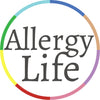Coeliac disease is an autoimmune condition where the immune system reacts abnormally to gluten, which results in small intestine damage due to the protein 'gliadin' found in food made from Wheat, Barley, Rye and Oats (that contain gluten).
Coeliac Disease can occur at any age and is spelt Celiac in some countries. This disease effects 1 in 70 Australians, however, around 80% remain undiagnosed.
If untreated coeliac disease damages the villi in the small intestine resulting in the villi being inflamed and flattened. This is also referred to as villous atrophy, which can cause gastrointestinal and malabsorptive symptoms.
People with coeliac disease remain sensitive to gluten throughout their life. However, a strict, lifelong Gluten Free diet does allow the condition to be managed effectively.
Coeliac Disease is not a food allergy or food intolerance.

SYMPTOMS
Celiac disease symptoms differ in children and adults, and some of them may be characterised by:
- Diarrhoea
- Bloating
- Flatulence
- Anaemia
- Dental enamel defects
- Fatigue
- Nausea
- Vomiting
- Stomach cramps
- Constipation
- Irritability in mood
- Pale, foul-smelling stools
- Weight loss
- Weight gain
- Delayed puberty in adolescents
- Tiredness
- Irritability
- Short stature
- Osteoporosis
- Joint pain
- Headaches
The validity and severity of these symptoms are dependent on the individual and the level of exposure, as determined by a qualified health care provider.
TREATMENT
If you experience or are in the presence of someone who encounters a serious reaction (this may include difficulty breathing, wheezing, throat tightening, swelling, collapse, etc), follow their action plan or emergency instructions and call or have someone call Triple Zero (000) immediately.
As consuming any gluten triggers an immediate immune response that damages the lining of the intestines, in the case of a minor consumption there are a few steps people with Coeliac Disease can take that may include hydration and rest, along with other medications based on the individual’s symptoms and prescribed treatments.
However, it is always necessary to seek medical attention to prevent larger health concerns and to set up/manage an Action Plan in the case of symptoms.
Always present your Allergy Card, Medical Alert Bracelet or Necklace to ensure health care providers, family members, friends, colleagues and others are aware of your Allergy or Allergies.
TESTING
A Blood Test or Endoscopy may be used to test for Coeliac Disease.
LABELLING
Some labels or terms you may come across on Coeliac Allergy friendly products:
"Coeliac Safe" "Gluten Free" "Gluten Alternative"


RANDOM FACT
Gluten isn't just limited to food products, and can also find its way in some cosmetics.
The information provided on Allergy Life Australia is to generally educate and inform you about living with allergies, intolerances and conditions, and is not intended as medical instruction or as a substitute for diagnosis, examination and advice by a qualified health care provider.




